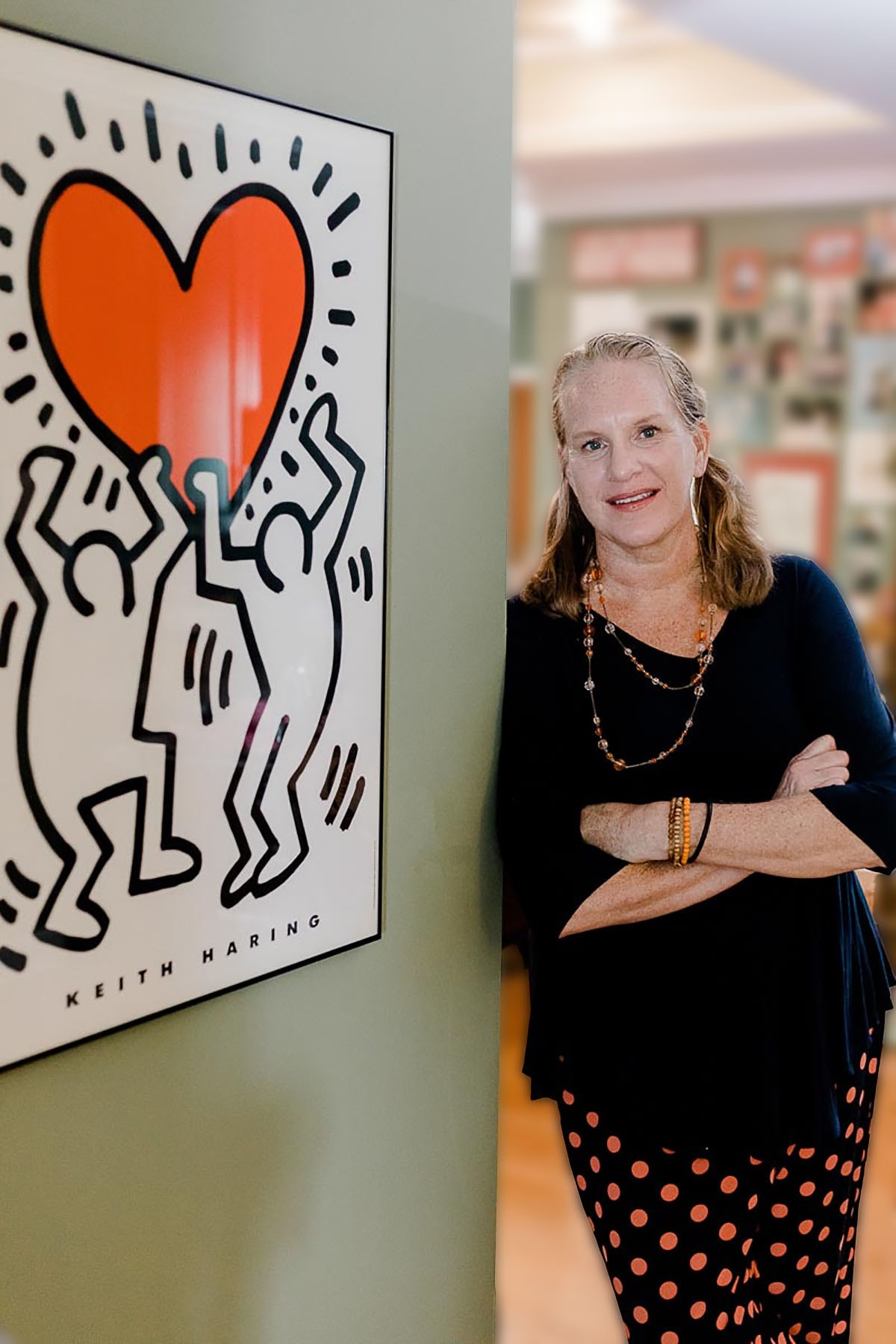Thank you to Hearth Management for asking me to participate in a Q&A session on Dementia to benefit their staff and family care partners! I enjoyed the exchange and look forward to doing something like this again!
HEARTH: We all know that mental stimulation is crucial for brain health as we age. What are some of your favorite ‘brain games’ or activities you recommend for brain health?
ELLEN: I am a firm believer in the connection between physical and cognitive wellness. Plus, science supports that theory! Therefore, maintaining movement thru exercise is my number one suggestion. Exercise (even at moderate levels) improves blood flow to the brain, which means more nutrients and oxygen to the brain. Walking is a great place to start. Resistance band-style exercise has proven impact as well. Have you heard that sitting is the new smoking? Getting up and getting moving is a fantastic first step in maintaining overall health and brain health.
Likewise learning a new skill or taking up a new hobby as we age is another recommendation. My mother began her ukulele lessons at age 89! She was inspired by a music program I’d created early in my career that centered on having adults over 70 learn to play a musical instrument, they’d never tried before. The students in my test group all showed marked improvement in cognition after participation in the program. So, whether you learn to play a musical instrument, learn to speak a new language, or learn to paint with watercolors, the idea is to keep challenging your brain to learn new things as we age.
HEARTH: Sometimes through frustration or maybe lack of understanding, certain caregivers slip into an unfortunate habit of treating elders in their care like children. What are your suggestions for all caregivers to consider as they strive to deliver dignified care for their loved one?
ELLEN: The dynamic of treating an elder like a child is something I’ve observed and experienced both with professional care providers as well as family caregivers. It’s a tricky conversation to have with family caregivers because there are often so many details and nuances in familial relationships that can be challenging to navigate. Most notably when an adult child is in the primary caregiving role. Taking care of a parent or grandparent who raised you, certainly is a huge balance-shift that can test the relationship.
Therefore, I like to revert back to the old adage of, “treat others the way you’d like to be treated”. I find far too often that those providing care support to someone with Dementia will speak in ‘baby-talk’. They literally will alter their voice cadence, as if they were communicating with an infant. Those folks need to know that although the elder in their care may exhibit childlike behavior, which can be a byproduct of the Dementia journey, they absolutely are NOT children and shouldn’t be treated as such.
All caregivers must remember that although the brain of someone with Dementia is shrinking due to their disease, their heart and soul remain intact. Therefore, the person can still pick up on tension both in your voice or your body language. They react to how you make them feel. And, when you speak in demeaning tones, the impact is negative and long-lasting for those with Dementia.
So, keep that in mind. Take pauses and deep breaths before you speak, if you need to calm down during a tense exchange or in a moment of frustration. Maintain a soothing demeanor, but speak like you would to your best friend. Kind, calm, and with respect for the person in your care.
HEARTH: Can you share some tips to Dementia caregivers on how to manage combative behavior or resistance to care?
ELLEN: Let me begin my response by saying that ‘combative behavior’ or ‘resistance’ are actually communication techniques that those with Dementia sometimes resort to because their damaged brain doesn’t allow them to actually tell you how they feel or what is wrong in that moment.
Again, caregivers must remember that a person with Dementia has a diseased brain. The type of Dementia the person has will impact how and where the brain deterioration happens and at what speed it occurs. But, suffice it to say some commonalities are observed across the spectrum of Dementia cases. Ability to reason, think critically or problem solve becomes an issue. Lack of awareness to surroundings or the ability to speak coherently or in full sentences may occur.
Therefore, if you make them feel uncomfortable by moving or speaking too fast or if they are in pain and experiencing discomfort they cannot express properly or possibly there is an environmental trigger making them uncomfortable like room temperature or an overstimulating atmosphere… any one of these things could negatively impact the person with Dementia.
Far too often, in both professional and family care environments; there are several of these stressors happening simultaneously which results in ‘combativeness’ or ‘resistance’. Keep in mind, in a situation where the person has a healthy brain with no Dementia and the room was too cold, they would be able to self-correct by getting a blanket, putting on a sweater, or turning the thermostat up for themselves.
However, as the Dementia journey progresses and those critical thinking/problem-solving areas of the brain are now fractured they must ‘communicate’ in the way their current brain allows.
I spend endless hours coaching caregivers on how to assess a situation (preferably before there is an incident) to determine if something in the care environment may cause distress. It could be a television playing loudly combined with loud chatter between people, a phone ringing while a baby is crying. All of this noise-stimuli could actually be challenging for a healthy brained person. For someone with Dementia, it’s a recipe for disaster.
Ensuring that the care environment is soothing and nurturing. Not overstimulating. Proper lighting and calm conversations. All of these items should be top-of-mind for all caregivers in any type of setting. When caregivers become vigilant in maintaining this type of care environment, they will see a direct correlation to less combative situations.
HEARTH: In your opinion what are the top 3 misconceptions about Alzheimer’s disease and Dementia?
ELLEN:
- That the words Alzheimer’s & Dementia are synonymous. Dementia is actually an umbrella term that covers a wide range of specific medical conditions that cause abnormal brain changes. These changes are severe enough to impair daily life and independent function. Alzheimer’s is the number one diagnosed type of dementia accounting for 60-80% of the cases.
- Dementia is normal. Don’t all older people get it? No, Dementia is not a normal part of aging. It’s caused by damage to brain cells and affects a persons’ thinking, behavior, and feelings. Although as we age there may be some forgetfulness. Like walking into the kitchen and forgetting why you went in there. However, in that scenario when you take a pause or retrace your steps and then remember why you went into the kitchen in the first place; that’s a sign of a healthy brain. Mental decline that impacts ones’ ability to perform normal activities of daily living is not normal and should be investigated for the root cause.
- People with Dementia don’t know what’s going on around them. Not entirely true. Especially in the early stages of their Dementia journey. For those with Alzheimer’s disease diagnosed after age 65, it’s typically a slow-moving progression of decline. It could take several years for some to begin exhibiting the level of memory loss that disrupts their daily lives.
For those later in their journey who may have lost the ability to speak or manage their own personal cares; make no mistake, they still have a heart and soul that’s intact and can sense tension or anger in their surroundings. Conversely, they can also sense love and kindness during an encounter. They recognize that someone smiling makes them feel good. Therefore yes indeed, on some level they know what’s going on. Therefore caregivers should use smiles, hugs, and soothing tones regularly!



